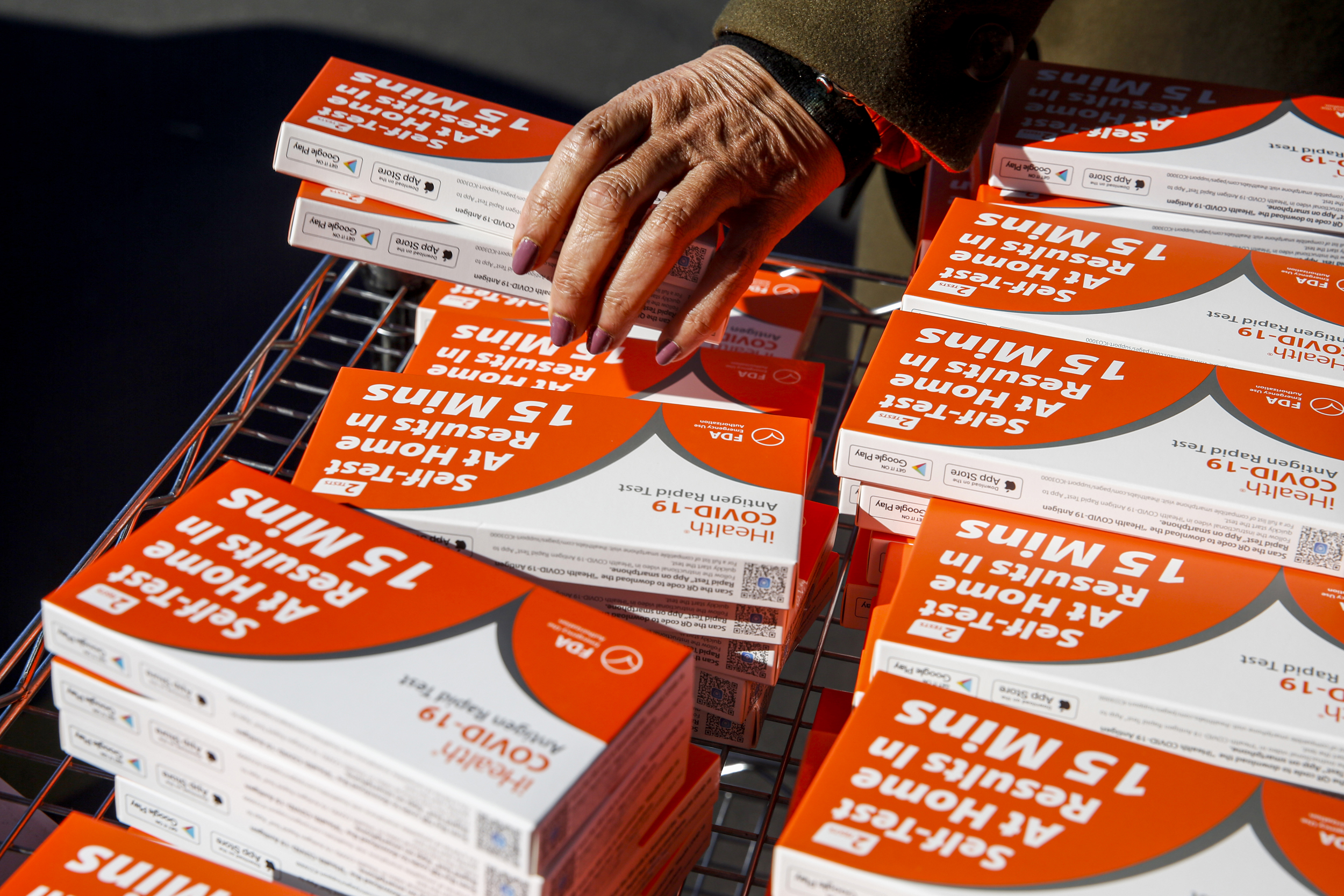
With sales of COVID-19 rapid tests from state-run liquor stores coming up short, New Hampshire health officials are seeking permission from lawmakers to distribute the tests to health centers and schools.
A proposal approved by the Executive Council in January authorized the state Department of Health and Human Services to use $12 million in federal pandemic aid to purchase 1 million at-home COVID-19 tests and sell them at liquor stores. The kits were being sold for $11.29 per single test, not including an administrative fee.
But state officials say they’ve only sold 74,100 tests at the liquor stores to date, amounting to $833,613 in proceeds.
In a request to the Joint Legislative Fiscal Committee, Health and Human Services Commissioner Lori Shibinette asks for authorization to redistribute 750,952 of the remaining tests to health-care centers, public schools, summer camps and child-care programs. Any remaining tests would be held onto by the state for reserves, she said.
“The proposed redistribution is reflective of current and anticipated need in the coming months,” Shibinette wrote. “The balance of the tests will be distributed to schools, camps, child-care centers and health-care settings at no cost to them.”
New Hampshire has nearly 70 state-run liquor stores located along highways, near borders with neighboring states, and major urban centers.
When state officials first launched the program, national supplies of antigen tests were limited making them hard to find at pharmacies and other retail outlets.
In November, Republican Gov. Chris Sununu made about 800,000 rapid tests available for residents to be delivered by mail, but the inventory was snapped up in less than 24 hours.
Since then, the Biden administration has provided free antigen tests through the mail and manufacturers have ramped up production, dramatically expanding availability of the tests.
State health officials say regular testing, even among those who are vaccinated or without COVID-19 symptoms, is crucial to detect infections early and prevent community spread. The rapid tests can be completed in 15 minutes, without sending a sample to a laboratory.
“With the continued increase in community spread of COVID-19 in New Hampshire, rapid and early detection is important to reduce the spread of disease, limit the strain on our medical care system and keep schools and businesses open,” Shibinette wrote in her letter to lawmakers.
This article was originally posted on New Hampshire’s plan to sell COVID-19 tests at liquor stores falls short